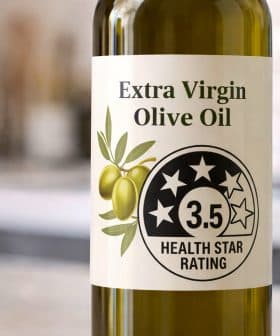Mediterranean Diet May Reduce Risk of Late-Life Depression
New research suggested that the higher the intake of vegetables, the lower the likelihood of late-life depression.
A study presented at the American Psychiatric Association’s 2019 annual meeting found that adherence to a Mediterranean-style diet, with high vegetable intake and low poultry and alcohol consumption, may reduce the risk of depression symptoms in older age. The study, conducted in Greece, showed that each unit increase in vegetable intake was associated with a 20% lower risk of depression, while each unit decrease in poultry and alcohol consumption was linked to a 36.1% and 28% reduction in depression likelihood, respectively.
Scientists at the American Psychiatric Association’s 2019 annual meeting presented the results of a study that showed adherence to a Mediterranean-style diet may reduce the risk of depression symptoms in later life.
Their findings indicated that an eating plan with a high content of vegetables but little intake of poultry and alcohol proved the most beneficial.
Adherence to a Mediterranean diet may protect against the development of depressive symptoms in older age.
Doctors have long recognized the Mediterranean diet (MedDiet) as a means of promoting longevity and lowering the risk of cardiovascular disease and cancer. Studies also reveal it may help prevent cognitive decline in seniors.
The MedDiet involves fruits, vegetables, legumes, whole grains, nuts and olive oil. It also includes moderate amounts of fish, poultry and dairy products, as well as limits sweets and red meat. A lifestyle rather than merely a diet, the eating plan is associated with getting regular exercise and eating meals with family and friends.
See Also:Olive Oil HealthIn the cross-sectional study from Hellenic Open University, Greece, lead author Konstantinos Argyropoulos and his colleagues looked at members of daycare centers for the elderly in East-Attica. Among the participants, 34 percent reported high adherence to the MedDiet and 64 percent reported medium adherence. Screening showed almost 25 percent displayed symptoms of depression.
The team found each unit increase in vegetable intake was tied to a 20 percent lower risk of depression. In addition, each unit decrease in poultry intake and alcohol consumption was linked to a 36.1 percent and 28 percent reduction in depression likelihood, respectively.
“Our results support that depression in older adults is common and strongly associated with several risk factors,” the authors concluded. “Adherence to a Mediterranean diet may protect against the development of depressive symptoms in older age.”
According to the authors, the study does not prove a cause-effect relationship. Instead, it may reflect that people with depression find it more difficult to follow a healthy diet.
Mark D Rego, an assistant clinical professor of psychiatry at the Yale University School of Medicine, did not participate in the study, but told Olive Oil Times that the benefit of the MedDiet for late-life depression may be due to its effects on vascular health.
“It’s important to note a few things about this study. Most importantly, it looked at late-life depression,” he said. “Cases of depression that first occur after age 55 or 60 are different than cases of depression that occur at a younger age. Late-life depression isn’t associated with a family history, and in approximately half of the cases, it’s the first sign of dementia.”
“Moreover, this study showed a link between the MedDiet and prevention, not treatment,” he added. “Nonetheless, it’s in agreement with many theories about late-life depression that stress vascular health. It may be that many tiny strokes lead to late depression and even predispose to dementia. The MedDiet is proven to maintain a high level of vascular health and prevent many of the usual problems of aging.”









